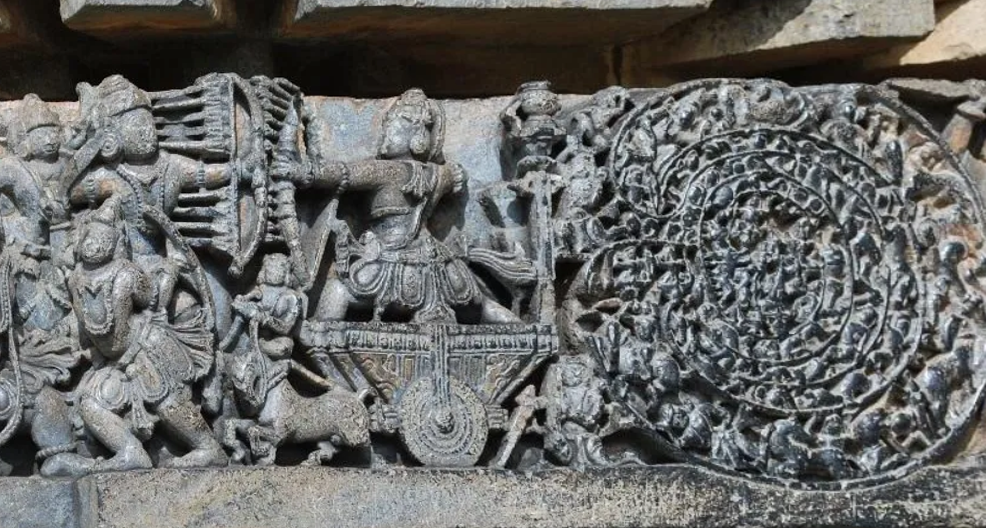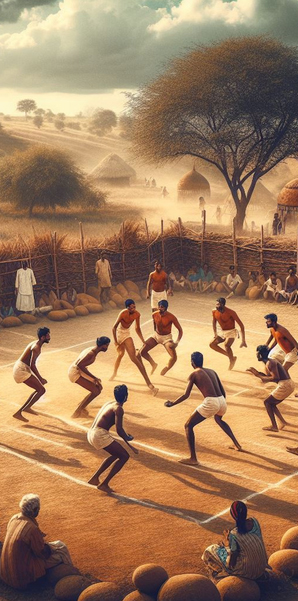Kabaddi
Kabaddi, a traditional Indian sport, traces its roots to Tamil Nadu and has a history deeply intertwined with Indian culture and mythology. The sport gained international recognition during the 1936 Berlin Olympics, marking its first exposure on the global stage. Kabaddi’s ancient origins are linked to combat practices, making it not just a game but a historical and cultural phenomenon.

Image Source : The Bridge
The game involves two teams, each with seven players, taking turns sending a “raider” into the opponent’s territory. The raider’s task is to tag opponents and return without being tackled, demanding a combination of agility, strength, and strategic prowess in a fast-paced setting. Kabaddi has various forms, but the common thread is raiding the opponent’s area and tagging players to eliminate them.
In Hindu mythology, Kabaddi finds a mention in the Mahabharata, where the Pandava warrior Arjuna is said to have mastered the skills of the game from Lord Krishna, who held a fondness for Kabaddi. Arjuna’s stealthy raids, breaching enemy walls and returning unscathed, showcase the strategic aspects of the game. Another mythological reference involves Abhimanyu, Arjuna’s son, invading the seven-tiered defence of the Kauravas, drawing parallels to a raider facing seven defenders in Kabaddi.

Image Source : theworldkabaddi
Kabaddi faced a decline but experienced a resurgence with the introduction of the Pro Kabaddi League in 2014. The league urbanised the traditional rural game, turning it into a 21st-century sports spectacle. This revival brought Kabaddi back into the limelight, capturing the attention of a wider audience.

Image Source : Google
Even Lord Gautam Buddha is believed to have played Kabaddi during his leisure time, showcasing the deep-rooted connection of the sport to ancient traditions. Kabaddi’s journey from ancient combat practice to a globally recognized sport reflects its resilience and adaptability, making it a significant part of India’s sporting heritage. The fusion of history, mythology, and contemporary competition has contributed to Kabaddi’s enduring popularity, both within India and on the international stage.
